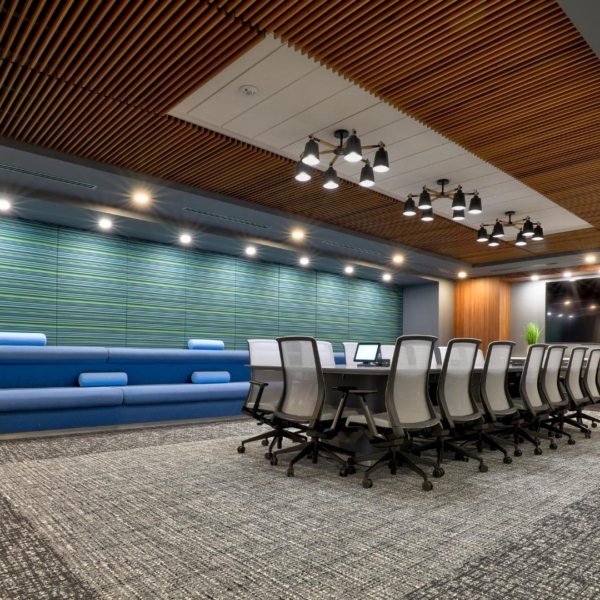On this page, we’ll discuss when is the ideal time to negotiate with General Contractors in Miami, how good general contractors in Miami ensures quality work, and more!
Intro To General Contractors in Miami
Navigating the complexities of contracts with general contractors in Miami for real estate and call business remodeling requires precise timing, understanding, and pricing from service professionals. The process isn’t just about finding remodeling contractors or service professionals; it’s about ensuring terms that protect both parties, including licensing and pricing. This involves knowing when to effectively negotiate these crucial job agreements through expert consultation and network.
With Miami’s bustling construction scene, securing a remodeling contractor deal that aligns with your project’s scope, budget, timeline, and specific job needs is essential for businesses. Whether you’re embarking on a residential renovation or a commercial build-out, grasping the optimal moment for contract negotiation with a remodeling contractor can make all the difference in achieving your construction goals. Consulting may provide valuable insights.
Why Should You Consider Negotiating Contracts with General Contractors?
Negotiating contracts with general contractors in Miami is essential. It ensures you get the best value for your project by finding the right remodeling contractor through a consultation. Whether dealing with commercial general contractors in Miami for businesses or residential ones for remodeling, negotiation during the consultation can significantly benefit the job.
Firstly, it allows for clarity and agreement on scope. This means both parties understand the work involved. Costs become transparent. There’s less chance of unexpected expenses popping up later.
Secondly, negotiating can secure better pricing or terms. Contractors are often willing to adjust their quotes for remodeling if it means ensuring a job after a consultation with businesses. This could mean savings for your business or more favorable payment schedules after consultation.
Here are key reasons to negotiate:
- A clear understanding of the project scope
- Potential cost savings
- More favorable payment terms
Remember, negotiation in business, job consultation, or space is not about lowball but finding a fair deal that benefits both sides.
Moreover, establishing a solid relationship with your contractor matters for a successful home remodeling job and business . Good negotiations and consultations lay the groundwork for trust and communication throughout the remodeling.
For projects in Miami, choosing a reputable commercial general contractor for remodeling is crucial for local businesses. They bring expertise, local knowledge, and consultation that can be invaluable in business.
Where Should Contract Negotiations Take Place?
Contract negotiations with general contractors in Miami for remodeling should occur professionally, involving consultation with locals. This ensures that both parties, including locals, are focused and can discuss terms related to remodeling without distractions. A quiet, private office is ideal. Here, remodeling documents and plans can be easily spread out for locals to reference.
Meetings might also take place at the project site. This allows for a real-time understanding of the scope and challenges of remodeling. It helps the client and contractor visualize the result of the remodeling together.
Choosing the proper environment is crucial for effective negotiation. Avoid public places or settings where interruptions are likely.
Preparing before meeting with commercial general contractors in Miami for remodeling is essential. Gather all necessary documents, including blueprints and specifications.
- Prepare questions
- Outline your budget constraints
- Understand timelines
This preparation shows you’re serious about the project.
Negotiation isn’t just about price but also terms that protect both sides if issues arise.
Critical aspects of negotiating include:
- Payment schedules
- Quality standards
- Timeline adjustments
Both parties must agree on these points before signing any contract.
Successful negotiation with commercial general contractors in Miami firms requires clarity, respect, and mutual understanding of goals.
How do you prepare for successful contract negotiations with general contractors?
Preparing for contract negotiations with general contractors in Miami requires careful planning and understanding. Gathering all necessary documents and having a clear idea of your project’s scope is essential. This includes detailed plans, budgets, and any specific requirements or deadlines you may have. Knowing these details will help you communicate more effectively with the contractor.
Before entering negotiations, research is critical. Look into the background of various Miami construction companies or general contractors. Check their past projects, reviews, and reputation in the industry. This information can give you an insight into their work quality and reliability.
Understanding standard contract terms used by general contractors in Miami, FL, is crucial. Familiarize yourself with terms like “scope of work,” “payment schedule,” and “change orders.” Understanding these terms will make discussing your project’s specifics easier without confusion.
To ensure a successful negotiation:
- List your project requirements.
- Have a realistic budget in mind.
- Be prepared to discuss timelines.
- Know the value of compromise.
Negotiating contracts involves both parties reaching an agreement that benefits them equally. Therefore, being open-minded and flexible during discussions can lead to better outcomes for your project.
Remember that successful negotiations are about getting what you want and finding a mutually beneficial solution with your chosen general contractor from Miami. Keep communication clear, stay informed about industry standards, and always aim for clarity in every aspect of agreement.
What Terms and Conditions to Include in a Construction Contract?
After preparing for contract negotiations with general contractors in Miami, knowing what terms and conditions should be included is crucial. This ensures that both parties understand their responsibilities, rights, and the scope of work. A well-drafted contract protects your interests.
Firstly, include a detailed description of the project. This outlines the scope of work expected from Miami construction companies. It should cover materials, labor, equipment, and services the contractor provides. Precise specifications prevent misunderstandings.
Payment terms are essential. They define how much and when you will pay the general contractor in Miami, FL. Include payment schedules, methods, and conditions for final payments. Mention penalties for late payments or incentives for early completion if applicable.
Another critical section is about change orders. These are inevitable in construction projects. Specify how changes to the original plan are handled between you and your general contractor in Miami.
Liability clauses protect against damages or injuries on-site during construction works by Miami construction companies.
Warranty information must be clear, too—detail what is covered under warranty by your general contractor in Miami, FL, and for how long.
Lastly,
- Ensure there’s a dispute resolution clause.
- Define termination conditions carefully.
These elements help manage expectations effectively throughout the project lifecycle with general contractors in Miami.
Why Engage in Pre-Bid Negotiations with General Contractors?
Pre-bid negotiations are crucial when dealing with general contractors in Miami. These discussions help both parties understand the project’s scope and expectations before making a formal bid. For clients, this step can clarify what services construction companies in Miami offer.
One significant advantage is cost transparency. Clients get an early estimate of costs from different commercial contractors in Miami. This allows for budget adjustments or project scope changes before committing to a contract.
Another benefit is establishing relationships. Early talks build trust between clients and contractors. This rapport can lead to smoother project execution.
- Pros of pre-bid negotiations:
- Cost transparency
- Relationship building
- Cons:
- Time-consuming process
Selecting the right contractor becomes easier after these discussions. Clients can assess which general contractors Miami has best aligned with their vision and budget.
After understanding the terms and conditions from the previous section, pre-bid negotiations become even more significant. They ensure that all parties explicitly agree on those terms before proceeding.
When to Negotiate Change Orders During the Project?
Change orders can disrupt project timelines and budgets. Knowing when to negotiate them is crucial. General contractors in Miami often face unexpected challenges during construction projects. These might be due to unforeseen site conditions or changes requested by clients.
Negotiating change orders early is advisable. This approach minimizes delays and cost overruns. Ideally, discussions should occur as soon as a potential issue arises. It can lead to more significant problems down the line.
There are specific moments that are optimal for negotiating change orders:
- Before starting a new phase of the project.
- Immediately after discovering an unforeseen issue.
- When there’s a request for additional features or upgrades from the client.
Commercial contractors in Miami emphasize clear communication throughout the process. This ensures all parties understand the implications of changes on time and budget.
Miami construction companies recommend establishing a protocol for handling change orders before starting projects. This includes setting deadlines for decision-making and specifying who has authority over approvals.
How to Ensure Fairness and Transparency in Contract Negotiations?
Ensuring fairness and transparency during contract negotiations with general contractors in Miami requires clear communication. Both parties must understand each other’s needs and expectations. Start by outlining the project scope clearly. Include all details, no matter how small they seem. This step prevents misunderstandings later on.
Research is key before entering negotiations. Know the average costs for similar projects handled by commercial general contractors in Miami. This knowledge gives you a benchmark for comparing quotes.
Use written agreements always. Verbal agreements can lead to disputes because there’s no record of them. Written contracts should detail every aspect of the project, including timelines, payment schedules, and materials used.
Regular updates are vital once work begins. These ensure that both sides adhere to the agreed terms.
To foster transparency:
- Share any changes immediately.
- Discuss the potential impact on cost or timeline.
This approach helps manage expectations throughout the project lifecycle.
Here are some tips for successful negotiation:
- Be prepared with facts about your project.
- Understand market rates for construction work in Miami.
- Communicate openly about your budget constraints.
Why Establish a Timeline for Contract Negotiations and Signings?
Creating a timeline for contract negotiations and signings is crucial. It ensures efficiency and clarity throughout the process. For general contractors in Miami, time is often of the essence. Projects need to start on schedule to meet deadlines.
A well-defined timeline aids in setting clear expectations for both parties. It outlines when discussions should conclude and when signatures are due. This minimizes delays. It also keeps projects moving forward smoothly.
Firstly, establishing a deadline encourages prompt decision-making. Parties involved know they need more time to negotiate terms, review contracts, or seek legal advice if required.
Secondly, it helps in resource planning. Contractors can allocate labor and materials effectively once they have a confirmed start date.
- Pros of having a set timeline include the following:
- Improved project management.
- Reduced risk of delays.
- Enhanced communication between all parties involved.
- Cons might involve:
- Potential pressure on stakeholders to make quick decisions.
For commercial general contractors in Miami, timelines also support financial planning and forecasting. Knowing when agreements will be signed allows for better cash flow management.
Conclusion
Navigating the intricacies of contract negotiations with general contractors in Miami requires a comprehensive understanding and strategic approach. This article has delineated essential aspects, from preparation and negotiation settings to the critical terms and conditions of construction contracts, underscoring the significance of pre-bid discussions, change order negotiations, and the importance of fairness and transparency throughout the process.
Establishing a clear timeline for these negotiations ensures that all parties are aligned, promoting a smoother project flow. Stakeholders must absorb these insights and apply them judiciously to foster successful collaborations with general contractors, thereby mitigating risks and enhancing project outcomes. Consider consulting with a professional specializing in construction law or contract management for further guidance or assistance in your contract negotiations. Their expertise can provide invaluable support in navigating these complex negotiations.










